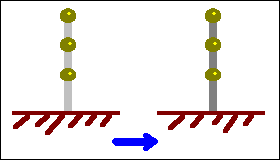ASSEMBLY NO 3759 STATE OF NEW JERSEY 216TH LEGISLATURE
10 CIII115RREV 115TH ASSEMBLY OF THE INTERPARLIAMENTARY7 A1274(B)R1 ASSEMBLY A1274(B)R1 ITEM 4 10
9 A1274(C)R1 ASSEMBLY A1274(C)R1 ITEM 4 24
(COMPANY) EMPLOYEE ORIENTATION TRAINING LEADERS GUIDE LOADING UNLOADING PACKAGINGASSEMBLY
0 BELARUS UNITED NATIONS GENERAL ASSEMBLY 71ST SESSION EIGHTH
12 SOFITA REPUBLIC OF BULGARIA GRAND NATIONAL ASSEMBLY
A3759
![]()
STATE OF NEW JERSEY
216th LEGISLATURE
![]()
INTRODUCED OCTOBER 2, 2014
Sponsored by:
Assemblyman DAVID C. RUSSO
District 40 (Bergen, Essex, Morris and Passaic)
Assemblyman SCOTT T. RUMANA
District 40 (Bergen, Essex, Morris and Passaic)
SYNOPSIS
Establishes crime-fraud exception applicable to marital and civil union partnership privilege
CURRENT VERSION OF TEXT
As introduced.

An Act establishing a crime-fraud exception to the marital and civil union partnership privilege, and amending P.L.1960, c.52.
Be It Enacted by the Senate and General Assembly of the State of New Jersey:
1. (New section) The Legislature finds and declares that:
a. Currently, section 22 of P.L.1960, c.52 (C.2A:84A-22), “The Evidence Act, 1960,” also enumerated as Rule 509 of the New Jersey Rules of Evidence, provides that no person shall disclose any communication made in confidence between such person and his or her spouse or partner in a civil union couple unless both consent to the disclosure, or unless the communication is relevant to an issue in an action between them, or in a criminal action or proceeding in which either spouse or partner consents to the disclosure, or in a criminal action or proceeding for which a testimonial privilege does not apply under section 17 of P.L.1960, c.52 (C.2A:84A-17). The communications privilege against disclosure does not terminate with the couple’s divorce, dissolution of civil union, or separation.
b. This privilege stems from the strong public policy in this State of encouraging free and uninhibited communication between spouses and partners. However, in its current form, this privilege may also have the unintended consequence of immunizing conversations between spouses and partners about their ongoing and future joint criminal behavior.
c. In a unanimous decision, State v. Terry, 218 N.J. 224 (2014), the New Jersey Supreme Court proposed an amendment to Rule 509 of the New Jersey Rules of Evidence, which corresponds to section 22 of “The Evidence Act, 1960,” to include a crime-fraud exception to the communications privilege in an effort to strike an appropriate balance between marital and civil union partnership privacy and the public’s interest in attaining justice.
d. Amending “The Evidence Act, 1960” in accordance with the New Jersey Supreme Court’s proposal will help obviate the unintended protection currently provided to certain criminal spouses and partners as a result of the communications privilege while preserving the privilege, which is essential to the preservation of the marital and civil union relationship.
2. Section 22 of P.L.1960, c.52 (C.2A:84A-22) is amended to read as follows:
22. [Rule 28.] Marital privilege--Confidential communications.
[No] (1) Except as otherwise provided in this section, no person shall disclose any communication made in confidence between such person and his or her spouse [unless] or civil union partner.
(2) There is no privilege:
(a) if both [shall] spouses or partners consent to the disclosure [or unless];
(b) if the communication is relevant to an issue in an action between [them or] the spouses or partners;
(c) in a criminal action or proceeding in which either spouse or partner consents to the disclosure[, or];
(d) in a criminal action or proceeding coming within section 17 of P.L.1960, c.52 (C.2A:84A-17); or
(e) in a criminal action or proceeding if the communication relates to an ongoing or future crime or fraud in which the spouses or partners were or are joint participants at the time of the communication.
(3) When a spouse or partner is incapacitated or deceased, consent to the disclosure may be given for such spouse or partner by the guardian, executor, or administrator. The requirement for consent shall not terminate with divorce , dissolution of civil union or separation. A communication between spouses or partners while living separate and apart under a divorce from bed and board or legal separation from a partner in a civil union shall not be a privileged communication.
(cf: P.L.2013, c.103, s.17)
3. This act shall take effect immediately.
STATEMENT
This bill would amend section 22 of “The Evidence Act, 1960,” P.L.1960, c.52 (C.2A:84A-22), which concerns marital and civil union partnership communications privilege and which is enumerated as Rule 509 of the New Jersey Rules of Evidence.
Currently, section 22 of P.L.1960, c.52 (C.2A:84A-22) provides that no person shall disclose any communication made in confidence between a person and his or her spouse or, consistent with section 5 of P.L.2006, c.103 (C.37:1-32), his or her civil union partner unless both consent to the disclosure, or unless the communication is relevant to an issue in an action between them, or in a criminal action or proceeding in which either spouse or partner consents to the disclosure, or in a criminal action or proceeding for which a testimonial privilege does not apply under section 17 of P.L.1960, c.52 (C.2A:84A-17), also referenced as Rule 501 of the New Jersey Rules of Evidence. This privilege against disclosure does not terminate with divorce, dissolution of civil union, or separation.
This privilege stems from the strong public policy in this State of encouraging free and uninhibited communication between spouses and civil union partners. However, in its current form, this privilege may also have the unintended consequence of immunizing conversations between spouses and partners about their ongoing and future joint criminal behavior.
In a unanimous decision, State v. Terry, 218 N.J. 224 (2014), the New Jersey Supreme Court proposed an amendment to Rule 509 of the New Jersey Rules of Evidence to include a crime-fraud exception to the communications privilege in an effort to strike an appropriate balance between marital and civil union privacy and the public’s interest in attaining justice. In response to the New Jersey Supreme Court’s proposed amendment, this bill would amend the section of “The Evidence Act, 1960” to which Rule 509 corresponds.
It is the sponsor’s belief that amending the statute in accordance with the New Jersey Supreme Court’s proposal will help obviate the unintended protection currently provided to certain criminal spouses and partners as a result of the communications privilege while preserving the privilege, which is essential to the preservation of the marital and civil union relationship.
2 ASSEMBLY BILL NO 2596 TO THE GENERAL ASSEMBLY
2 ASSEMBLY HUMAN SERVICES COMMITTEE STATEMENT TO ASSEMBLY NO
2 ASSEMBLY LABOR COMMITTEE STATEMENT TO ASSEMBLY NO 3174
Tags: 216th legislature, state, assembly, 216th, jersey, legislature
- SIDE 6 AF 6 TJEKLISTE TIL ARBEJDSMILJØET I KEMI
- COMUNIDAD ANDINA SECRETARIA GENERAL RESOLUCIÓN 122 3 DE SETIEMBRE
- LJUDSKA TRADICIJA – RAZLIČNOST MED NARODI 14 MEDNARODNI
- CAPÍTULO II PRIMERA PARTE ANEMIAS HIPOPROLIFERATIVAS RECOPILACIÓN DE DATOS
- CÉGISMERTETŐ MNP MÉRNÖKIRODA KFT BERUHÁZÁSOK TERVEZÉSÉRE BONYOLÍTÁSÁRA MŰSZAKI TENDEREK
- KLUB LAND ROVER SLOVENIJA DEVOVA 18 1000 LJUBLJANA
- REAL DECRETO 602002 DE 18 ENERO APRUEBA EL PROGRAMA
- LOS GÉNEROS MÁS COMUNES APROXIMACIÓN SIMPLIFICADA A LA CLASIFICACIÓN
- 2003120999 LEY P N° 1217 ARTÍCULO 1º APRUÉBASE
- THE CARE MEASURE © STEWART W MERCER 2004
- MULTIPLE CHOICE QUESTIONS (MCQ) TOPIC QUIZ 31 THE
- GUÍA N° 5 CONSTRUYAMOS NUESTRA BOTELLA DE MIS EMOCIONES
- LOKALNI PLAN ZA UNAPREĐENJE SOCIJALNE INKLUZIJE RAZVOJ SOCIJALNIH
- [MS OF AN ARTICLE PUBLISHED IN SOCIAL EPISTOMOLOGY
- ANNA RAPPE OKRĘGOWA KOMISJA EGZAMINACYJNA W KRAKOWIE EWD W
- GENERELT LED SYMPTOMERFUND PARAKLINISK EKSTRAARTIKULÆRT BEHANDLING BLODPRØVE RØNTGEN ANDET
- JORDBRUKSVERKET KJELL WEJDEMAR ANG FÖRSLAG TILL NY KONTROLLFÖRESKRIFT (DNR
- LJUBLJANA 16 07 2010 JAVNE RAZPRAVE O PREDLOGU ZAKONA
- CDOT RECORD STORAGEDESTRUCTION MANIFEST ITEMS 8 ZOOM REGIONS
- ABOUT RED TIGER RED TIGER IS A STOCKHOLM BASED
- ASSESSMENT FOR ALL STUDENTS HIGHER EDUCATION AND SOCIAL JUSTICE
- UNIVERSIDAD ESPECIALIZADA DE LAS AMÉRICAS CONSEJO ELECTORAL 20112014 REPÚBLICA
- PENDULUM AQUACAP GENERAL INFORMATION COMMON NAME PENDIMETHALIN EPA NUMBER
- ZAŁĄCZNIK NR 4 DO PRZEWODNIKA BENEFICJENTA RPO WP 20072013
- BEHIND CLOSED DOORS GENDERED HOME SPACES IN A GULF
- YAMAN ARKUN KOÇ UNIVERSITY İSTANBUL TURKEY EDUCATION PHD 1979
- ESPECIFICACIONES TÉCNICAS NOMBRE PRODUCTO SONDA DE TEMPERATURA EPOXI 4
- HTML HEAD META HTTPEQUIVCONTENTTYPE CONTENTTEXTHTML CHARSETWINDOWS1252 HEADBODYH1PEMANTAPAN KETRAMPILAN SISWA
- ZKP 112018 ZAŁĄCZNIK NR 5 DO SIWZ …………………………… DNIA
- LESSON ELEMENT UNIT 2 PROPOSAL FOR A COMMISSIONING
16 SAMMANSTÄLLNING AV PÅGÅENDE ARBETE INOM SNACPROJEKTET 201603 GEMENSAMMA
ÁREA DE GESTIÓN Y ORGANIZACIÓN DE EMPRESAS LOS PRODUCTOS
 ANÁLISIS SÍSMICO DE EDIFICIOS POR COMPUTADORA 17 INTRODUCCIÓN
ANÁLISIS SÍSMICO DE EDIFICIOS POR COMPUTADORA 17 INTRODUCCIÓN  EXECUTIVE COMMITTEE 13 JANUARY 2009 T HIRD SECTOR TASK
EXECUTIVE COMMITTEE 13 JANUARY 2009 T HIRD SECTOR TASK6SZ MELLÉKLET AZ 572013 (II 27) KORM RENDELET ALAPJÁN
 U NIVERSIDAD VERACRUZANA FACULTAD DE CIENCIAS QUÍMICAS INGENIERÍA QUÍMICA
U NIVERSIDAD VERACRUZANA FACULTAD DE CIENCIAS QUÍMICAS INGENIERÍA QUÍMICA CONSEJO SUPERIOR UNIVERSIDAD DEL TOLIMA OSCAR BARRETO QUIROGA GOBERNADOR
CONSEJO SUPERIOR UNIVERSIDAD DEL TOLIMA OSCAR BARRETO QUIROGA GOBERNADOR4 GOBIERNO DE PUERTO RICO 18VA ASAMBLEA 7MA SESIÓN
COMMITTEE ON THE RIGHTS OF THE CHILD GENERAL COMMENT
DESDE HACE UNOS AÑOS SE VIENE REALIZANDO LA INSPECCIÓN
NATJECANJE–IZLOŽBA UČENIKA OSNOVNIH I SREDNJIH ŠKOLA IZ PODRUČJA VIZUALNIH
1 POSZKODOWANY PO UPADKU Z DUŻEJ WYSOKOŚCI
NA TEMELJU ČLANKA 35 STAVKA 1 TOČKE 1 ZAKONA
CONSEJOS PARA DISMINUIR EL CONSUMO DE ENERGÍA ELÉCTRICA
 PROGRAM SUFINANCIRA OPĆINA VELIKI GRĐEVAC I FOND ZA ZAŠTITU
PROGRAM SUFINANCIRA OPĆINA VELIKI GRĐEVAC I FOND ZA ZAŠTITU NACIONALINIS KONKURSAS „LIETUVOS ISTORIJOS ŽINOVAS“ ATSAKYMAI 1 ERATA EUTERPĖ
NACIONALINIS KONKURSAS „LIETUVOS ISTORIJOS ŽINOVAS“ ATSAKYMAI 1 ERATA EUTERPĖWORKSHOP REPORT REGIONAL PHYTOSANITARY PORTAL WORKSHOP FOR THE PACIFIC
 HCPHCNDIA66105703 ORIGINAL ENGLISH DISTRIBUTION LIMITED THE CENTRAL AMERICA DIABETES
HCPHCNDIA66105703 ORIGINAL ENGLISH DISTRIBUTION LIMITED THE CENTRAL AMERICA DIABETES PROGRAMMA VAN TOETSING EN AFSLUITING VMBO TL EXAMENPERIODE 2021
PROGRAMMA VAN TOETSING EN AFSLUITING VMBO TL EXAMENPERIODE 2021POSTCOMMUNISM AND SOCIAL MOVEMENTS CÍSAŘ O 2013 “POSTCOMMUNISM AND